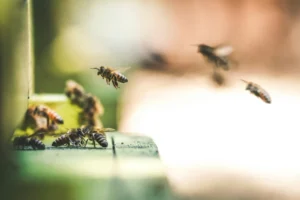Table of Contents
- Introduction
- The Benefits of Manuka Honey
- Making Manuka Honey Mouthwash
- Using Manuka Honey for Oral Health
- Using Manuka Honey in Your Mouth
- Caring for Your Teeth and Gums
- Is Honey Safe for Inflamed Gums?
- The Best Natural Mouthwashes for Oral Health
- Ingredients That Kill Bacteria in Mouthwash
- Making Homemade Miracle Mouthwash
- Refrigerating Manuka Honey
- Using Manuka Honey for Skincare
- Healing Mouth Sores
- Healing Mouth Ulcers
- Fighting Gingivitis
- Using a Waterpik for Gingivitis
- Natural Remedies for Receding Gums
- Conclusion
Introduction
Manuka honey is a type of honey that is produced in New Zealand. It has a unique flavor and is considered to be very beneficial for health. Manuka honey has been used traditionally for health purposes and is now gaining popularity as a natural remedy for a variety of ailments.
The Benefits of Manuka Honey
Manuka honey has antibacterial, antifungal, and anti-inflammatory properties. It is also a natural source of hydrogen peroxide, which is a powerful disinfectant. These properties make it an excellent choice for oral health.
Making Manuka Honey Mouthwash
To make a manuka honey mouthwash, you will need:
- 1 cup of water
- 1 tablespoon of manuka honey
- 1 teaspoon of apple cider vinegar
- 1 drop of lavender essential oil
To make the mouthwash, simply combine all of the ingredients in a bowl and stir until the honey is completely dissolved. Store the mouthwash in a dark glass jar with a tight-fitting lid.
To use the mouthwash, simply gargle with it for 30 seconds and then spit it out. There is no need to rinse your mouth afterwards.
Using Manuka Honey for Oral Health
Manuka Honey Toothpaste
Applying some Manuka honey to your toothbrush can help to destroy plaque and reduce gum inflammation. Be sure to brush thoroughly, so that the honey can reach all the nooks and crannies of your teeth.
Manuka Honey for Gingivitis and Periodontal Disease
Studies have shown that Manuka honey has a potential therapeutic role in the treatment of gingivitis and periodontal disease. It has a stimulatory effect on the growth of cells that repair the tissues damaged by infection. Therefore, Manuka honey may be an effective treatment for gingivitis and periodontal disease.
The Best Homemade Mouthwash
A double-blind randomized controlled trial has demonstrated that manuka honey and other raw honeys are almost as effective as chlorhexidine as a mouthwash. This makes it a great natural alternative to traditional mouthwashes that may contain harsh chemicals. Raw honey has antibacterial and anti-inflammatory properties that can help to keep your mouth healthy and free from infection.
Using Manuka Honey in Your Mouth
Manuka honey can be used in a variety of ways for oral health. It can be used as a paste to help with gum inflammation and to reduce plaque buildup on the teeth. It can also be applied to canker sores to help speed up the healing process. However, it is important to avoid leaving honey on your teeth overnight, as this can affect the health of your teeth.
Caring for Your Teeth and Gums
To prevent oral health problems such as gingivitis, cavities, and gum disease, it is important to care for your teeth and gums properly. This includes brushing your teeth at least twice a day, flossing daily, and using a natural mouthwash. Additionally, regular visits to the dentist for professional cleanings and checkups are essential.
Is Honey Safe for Inflamed Gums?
Honey is a natural remedy for gum disease that can be used in addition to traditional treatments. It has antibacterial properties that can help to eliminate the bacteria that cause gum disease. Applying raw honey to the gums after brushing can help to soothe gum inflammation and reduce the size of gum pockets.
The Best Natural Mouthwashes for Oral Health
The following are the six best natural mouthwashes for oral health:
- Tom’s of Maine Wicked Fresh Mouthwash
- Tom’s of Maine Whole Care Anticavity Mouthwash
- Hello Kids Wild Strawberry Anticavity Mouthwash
- Hello Naturally Fresh Antiseptic Mouthwash
- Hello Fresh Spearmint Moisturizing Mouthwash
These mouthwashes are effective at preventing cavities and gingivitis, and they taste great too!
Ingredients That Kill Bacteria in Mouthwash
Menthol is an essential oil that has germ-killing properties that help prevent the growth of bacteria in the mouth. It is a safe and effective way to keep the mouth clean and healthy. Other natural ingredients, such as hydrogen peroxide, can also be used in mouthwash to kill bacteria and reduce inflammation.
Making Homemade Miracle Mouthwash
To make a homemade miracle mouthwash, mix all the ingredients except the water. Add the water last and mix well. Gargle and swish for 30 seconds and expectorate. Do not swallow. Use every four hours as needed.
Refrigerating Manuka Honey
Manuka honey does not need to be refrigerated. In fact, it is best to avoid refrigeration as it can cause crystallization. Manuka honey should be stored in a cool, dark place, such as a cupboard or pantry.
Using Manuka Honey for Skincare
Honey is an effective way to help balance oily skin and reduce excess sebum production. It provides the skin with a healthy, dewy appearance, and helps to regulate oil production. Honey is also non-comedogenic, so it won’t clog your pores and lead to breakouts.
Healing Mouth Sores
If you have mouth sores, there are a few remedies that can help speed up the healing process. Rinse your mouth with salt water or baking soda solution a few times a day to relieve pain and promote healing. You can also apply a small amount of milk of magnesia to the sore. Avoid abrasive, acidic, or spicy foods that can cause further irritation and pain.
Healing Mouth Ulcers
If you have a mouth ulcer, you can try treating it with baking soda. Mix baking soda and water to make a paste, and apply it to the ulcer. Once the paste dries out, rinse your mouth with water to clean the paste. This should significantly reduce the pain from the ulcer.
Fighting Gingivitis
To fight gingivitis, there are a few simple steps you can take at home:
- Brush your teeth at least twice a day or after every meal or snack.
- Use a soft toothbrush and replace it every three to four months.
- Consider using an electric toothbrush for more effective plaque and tartar removal.
- Floss your teeth every day.
- See your dentist regularly for cleanings and checkups.
By following these steps, you can help keep your gums healthy and prevent more serious problems.
Using a Waterpik for Gingivitis
The Waterpik water flosser is clinically proven to remove up to 99.9% of plaque from treated areas along the gum line and between teeth. It has also been shown to help prevent, reduce, or reverse gingivitis (gum disease). Using a Waterpik as part of your daily oral hygiene routine can help improve gum health.
Natural Remedies for Receding Gums
If you have receding gums, there are a few natural remedies that can help:
- Saltwater rinse: Rinse your mouth with a saltwater solution to reduce inflammation and kill bacteria.
- Green tea: Drink green tea or use it as a mouthwash to take advantage of its anti-inflammatory properties.
- Oil pulling: Swish coconut oil or sesame oil in your mouth for several minutes, then spit it out to reduce gum inflammation.
- Hydrogen peroxide: Use a diluted hydrogen peroxide solution as a mouthwash to kill bacteria and reduce gum inflammation.
- Maintain thorough oral hygiene: Brush and floss your teeth regularly to remove bacteria and food particles that can contribute to gum recession.
Conclusion
Manuka honey is a versatile natural remedy that can be used for oral health. Properly storing and using manuka honey is essential to maintain its beneficial properties. It is not necessary to refrigerate manuka honey, but it should be stored in a cool, dark place. Manuka honey can be used to make mouthwash, toothpaste, and to alleviate gum inflammation. It can also be used to treat canker sores and promote oral healing. By incorporating manuka honey into your oral care routine, you can enjoy its antibacterial and anti-inflammatory benefits for healthy teeth and gums.



